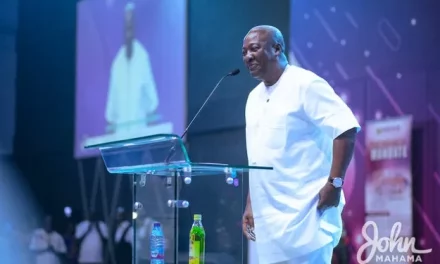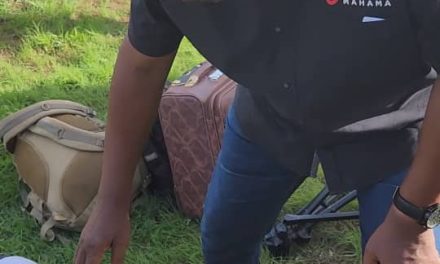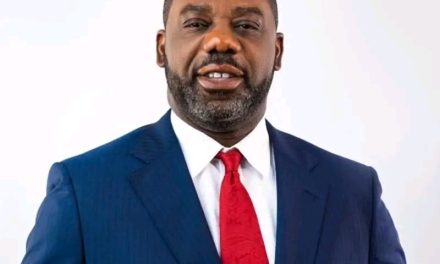
Call For Slave Trade Reparations, Not A Plea For Alms – President Akufo-Addo8 min read
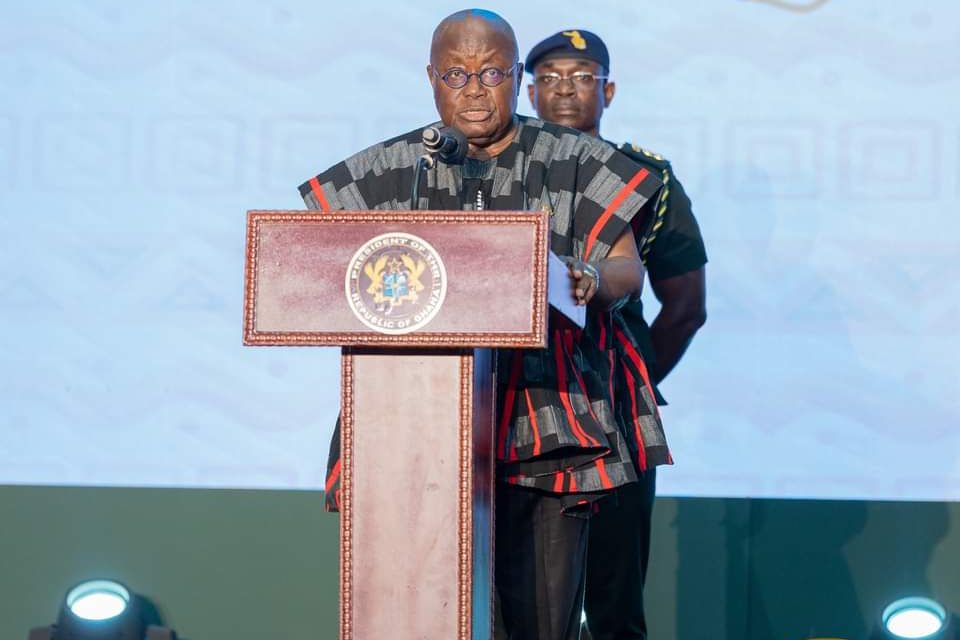
President Akufo-Addo has stated that the call by Africans and Africans in the diaspora for the payment of reparations by European nations who carried out the transatlantic slave trade some 400 years ago is not a plea for alms but it is a demand for justice.
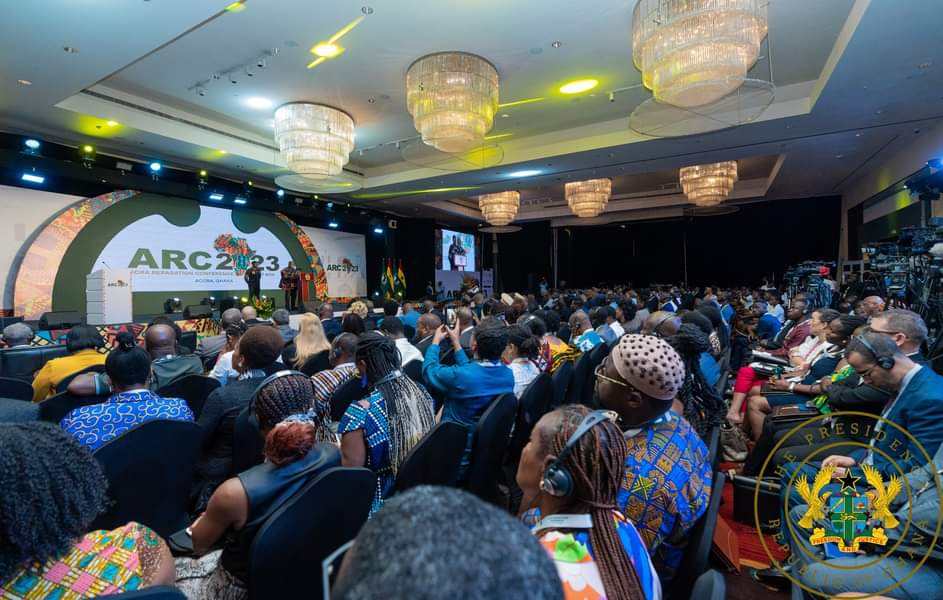
The demand for reparatory justice, according to President Akufo-Addo, must go hand in hand with the subject of restitution. He indicated that the restitution should be executed through the return of all cultural properties of African nations that were illegitimately and barefacedly taken from Africa and transported to European countries.
Speaking at the maiden edition of the Accra Reparations Conference (ARC 2023) held at the Kempinski Hotel, Gold Coast City, on Tuesday, 14 November 2023, President Akufo-Addo said reparations for African and Africans are long overdue, noting that victims of other injustices in human history have rightly received reparations and that, Africans deserve the same for the damage caused by the transatlantic slave trade.
“The call for reparation is not a plea for alms but a valid demand for justice. If reparations can rightly be paid to victims and the descendants of victims of the Holocaust, so can reparations also be paid to the descendants of the victims of the slave trade. It has been four hundred years, and we want to bring closure to this tragedy.
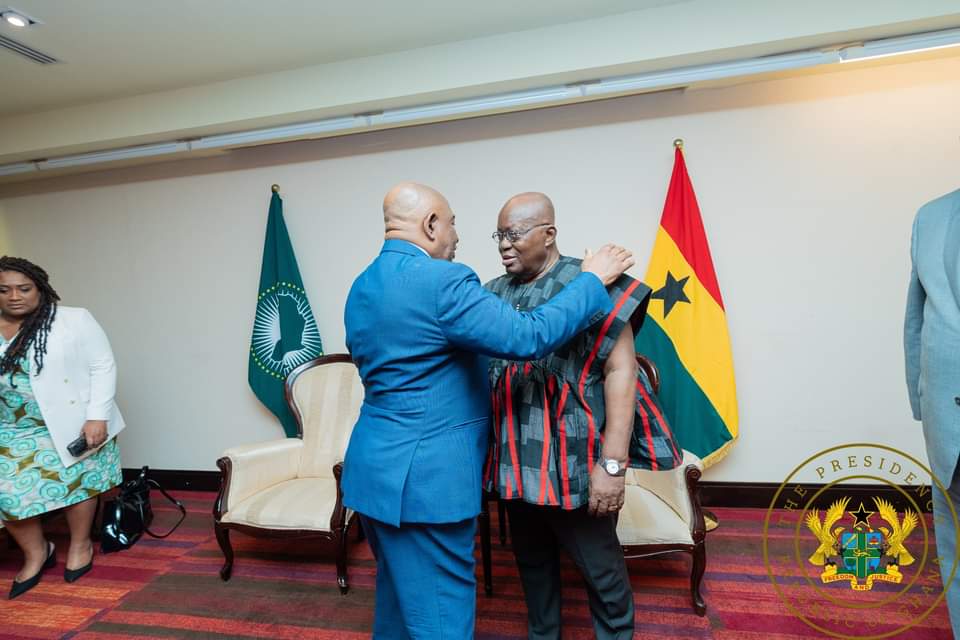
“While at it, let me point out that the subject of reparations must go along with the subject of restitution. The initiative for the return of African cultural properties to the continent must also be an issue of major concern for all Africans. We must call for the return of African cultural properties that were illegally and shamelessly transported from the continent” President Akufo-Addo said.
Tracing the history of the transatlantic slave trade, President Akufo-Addo, said “It began with some 20 slaves from West Africa being forcefully sent in 1619 to the commonwealth of Virginia, in what was to become part of the United States of America. This initial action he noted, “was the first of 36,000 voyages to and from Africa which resulted in some 20 million Africans from Central and West Africa being sold into slavery in the Americas and the Caribbean”.
“We are also told that 10% of this number, that is, some 2 million Africans lost their lives en route to their destinations with the Atlantic Ocean serving as their final resting place. As if this was not enough, the continent had to endure centuries of being colonized by the same people who undertook the slave trade.
“The identity and personality of Africans were brutally assaulted, and the imprints of colonialism and imperialism woven deeply into the fabric of our lives. The effects of the slave trade have been devastating to the African continent and to the African diaspora. The entire period of slavery meant that our progress economically, culturally, and psychologically was stifled” President Akufo-Addo stated.
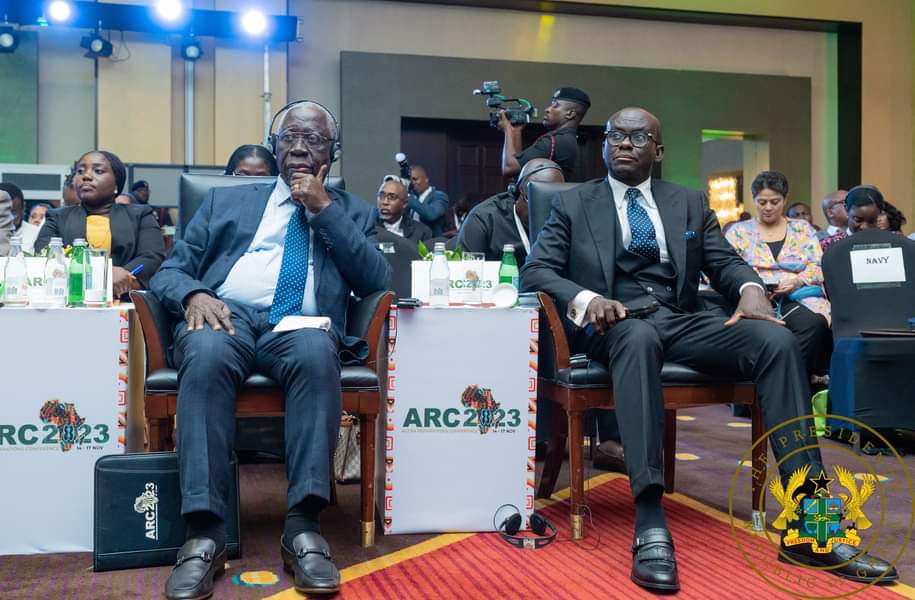
Fair treatment
In his statement, President Akufo-Addo traced the history of the payment of reparations to victims of historic injustices such as the holocaust and even those who owned slaves when the slave trade was finally abolished. To this, President Akufo-Addo noted that there must be no reason why the payment of reparations to Africans who suffered from the devastating effects of the transatlantic slave trade should be questioned.
“Reparations for Africa and the African diaspora are long overdue. Predictably, the question of reparations becomes a debate only when it comes to Africa and Africans. When the British ended slavery, all the owners of enslaved Africans received reparations to the tune of some 20 million pounds sterling, the equivalent to some 20 billion pounds sterling but enslaved Africans themselves did not receive a penny.
“Likewise, in the United States of America, owners of slaves received $300.00 for every slave they owned, the slaves themselves, and received nothing. Take the case of Haiti, which had to pay reparations amounting to 21 billion United States dollars to French slave owners in 1825 for the victory of the Haitian revolution, the first in the Americas and the Caribbean which freed the slaves” President Akufo-Addo said.
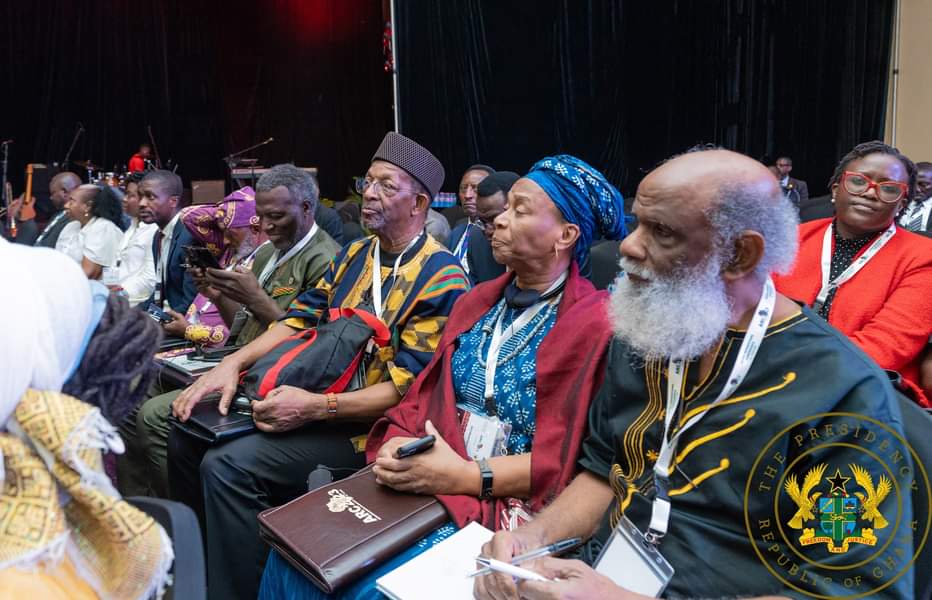
“It was a payment made under duress that impoverished Haiti throughout the 19th century until today. Native Americans received and continue to receive reparations, Japanese Japanese-American families who were incarcerated in internment camps in America during World War Two, received reparations. Jewish people, six million of whom perished in the concentration camps in “Hitlerised” Germany, received reparations including homeland grants and support.
“So, it is time for Africa, 20 million of whose sons and daughters had their freedoms curtailed and sold into slavery, also to receive reparations. No amount of money can restore the damage caused by the transatlantic slave trade and its consequences which have spanned many centuries, but surely, this is a matter that the world must confront and can no longer ignore” he added.
Demand for apology
President Akufo-Addo also called on Africa’s “slavemaster” to render a formal apology to the entire continent for carrying out the slave trade “crime.”
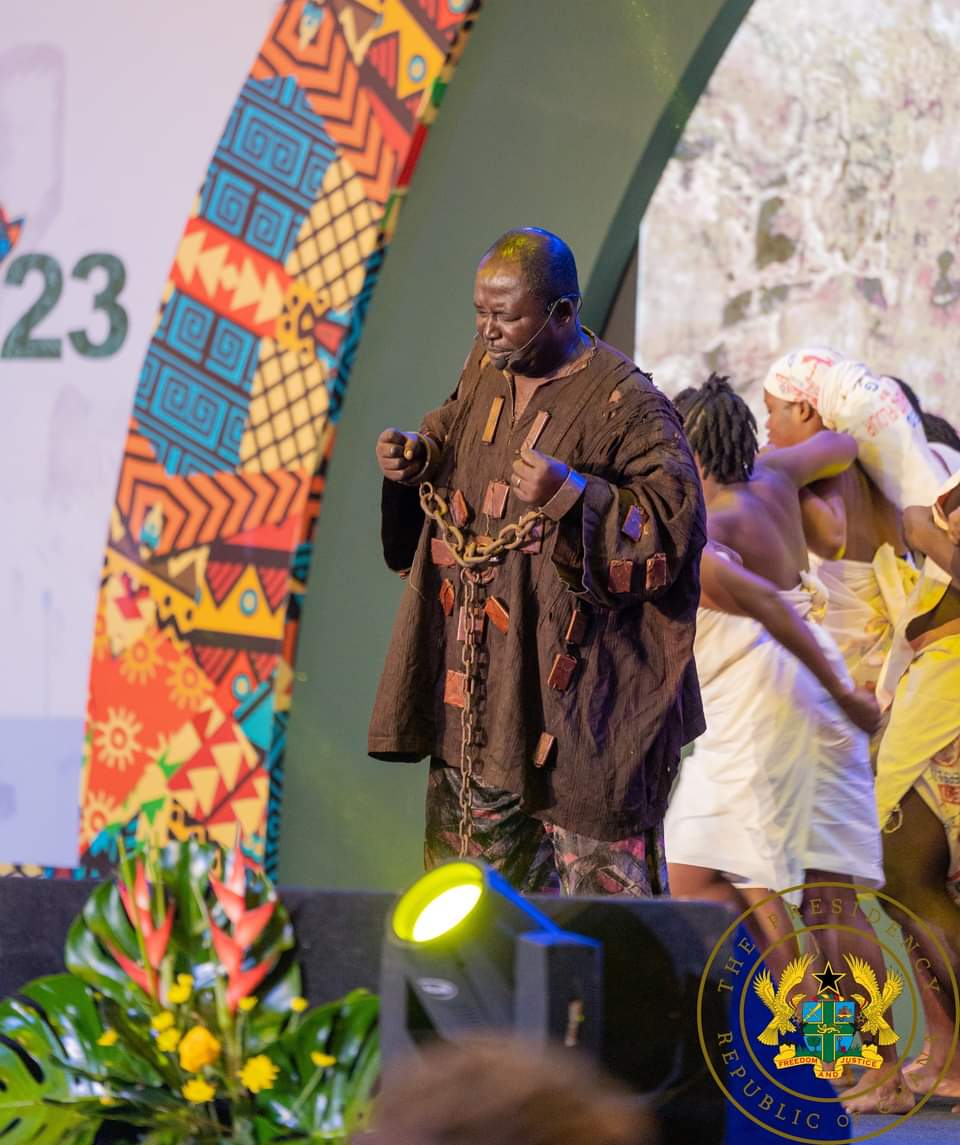
“Even before these discussions of reparations conclude, the entire continent of Africa deserves a formal apology from the European nations involved in the slave trade for the crimes and damage it has caused to the population, psyche, image, and character of the Africans the world over” President Akufo-Addo remarked.
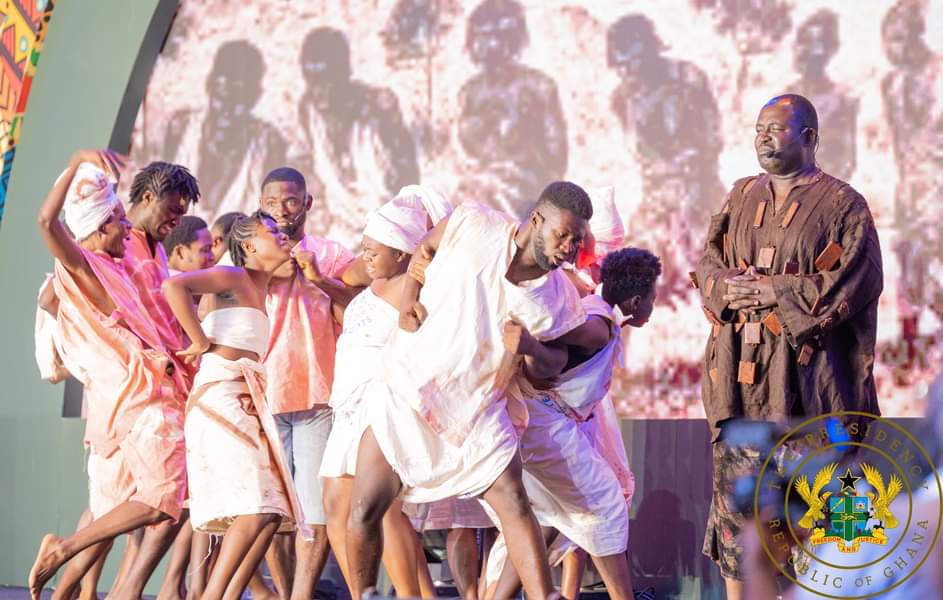
Shared commitment to justice
The conference was organized by Ghana in close collaboration with the African Union (AU) Commission. In her solidarity statement, her Excellency, Dr Monique Nsanzabaganwa, Deputy Chairperson of the African Union Commission, said the demand for reparations is not an attempt to rewrite history or to continue the cycle of victimization but, it is a call to recognize the undeniable truth and right the wrongs that have gone unpunished for far too long and continues to thrive presently.

“Reparations demonstrate our shared commitment to justice, reconciliation, and healing. We gather here today with a sense of unity that transcends geographical borders and ideologies. Our shared belief in the necessity of reparations binds us together, and it is only through our collective strength that we will be able to put what we believe into action.
“We are here today to chart a new course, one that will pave the way for a better, more equitable world devoid of keeping Africa under subjugation while other parts of the world thrive. Reparations are more than merely financial transactions; they are a moral and ethical obligation. They represent our acknowledgment of past wrongs and, more importantly, the resolve to make amends,” Dr Monique Nsanzabaganwa said.
“It is a tangible step toward justice, equality, and healing for those who have suffered and continue to suffer the consequences of historical injustices. To build this “united front,” I reiterate the importance of working together in a collaborative and cooperative spirit.
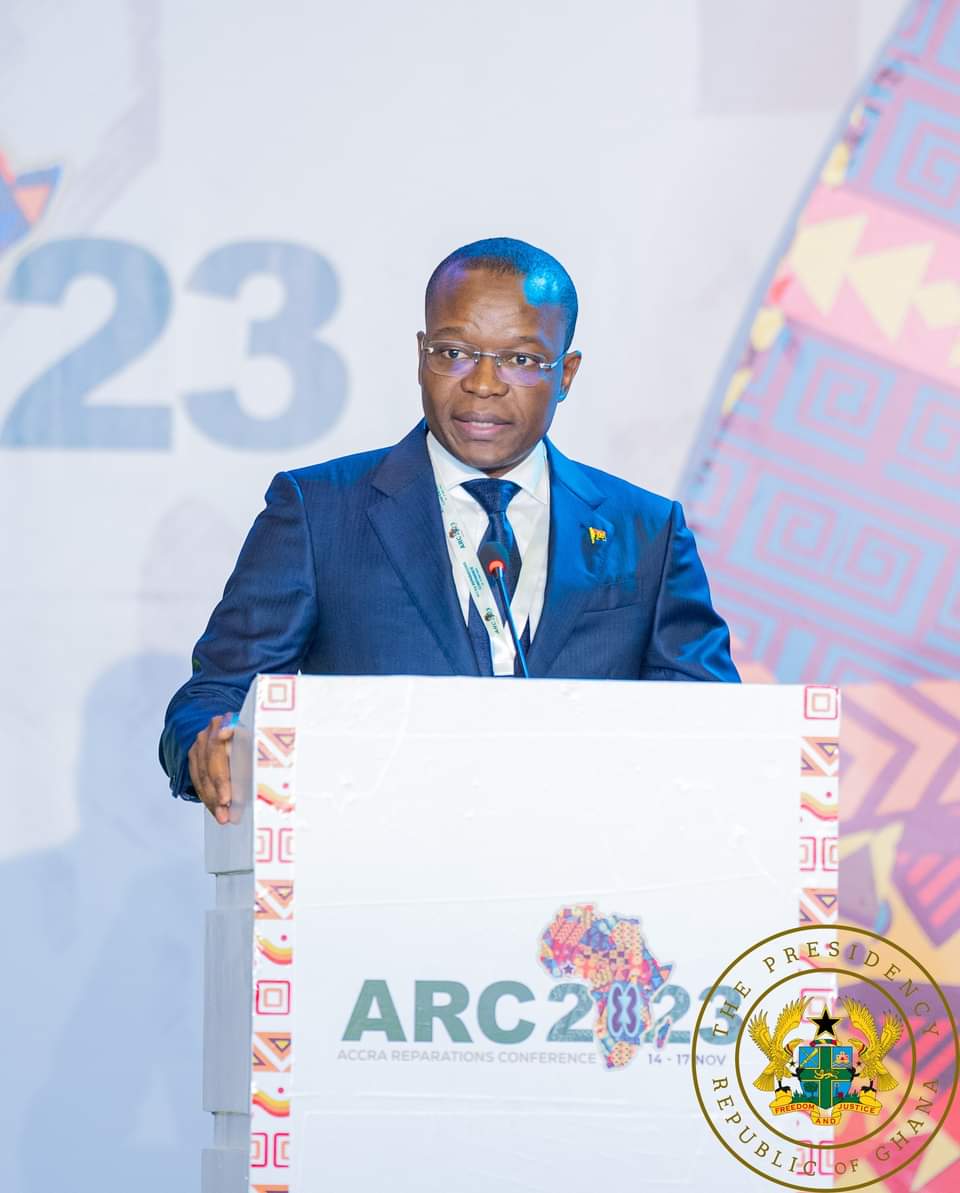
“The cause of justice knows no bounds, and only by working together can we overcome the challenges that lie ahead. In the pursuit of reparations, it is also our duty to address the lingering structural inequalities. It is about quality education with the conscious effort to work towards the positive transformation of the psyche of Africans, quality access to healthcare, economic empowerment, and the reconstruction of our dignity as a people. Our vision is to make Africa an influential global player in a more equitable world, ” Dr Nsanzabaganwa added.
ARC objectives/outcomes
The objectives of the ARC are, among others, facilitating meaningful discussions and knowledge sharing among experts policymakers, academics, and stakeholders on the topic of reparations, examining the legal and moral grounds for reparations and exploring different models of reparatory justice and exploring mechanisms for truth-telling, acknowledgment, reconciliation, and healing both within African and African diaspora societies and in relationships with former colonial powers.
It is the hope of organizers of the ARC 2023 that the conference will result in an African reparations action plan/program, outlining key strategies,
timelines and the responsible stakeholders for a sustainable reparatory justice process.
They are also looking forward to increased awareness and mobilization of support from all relevant stakeholders on
the issue of reparations at the global level through engagement with international institutions and to strengthen unity and collaboration among Africans, peoples of African descent, the diaspora, through the establishment of an African – Caribbean
Joint Mechanism on reparatory justice, among others.
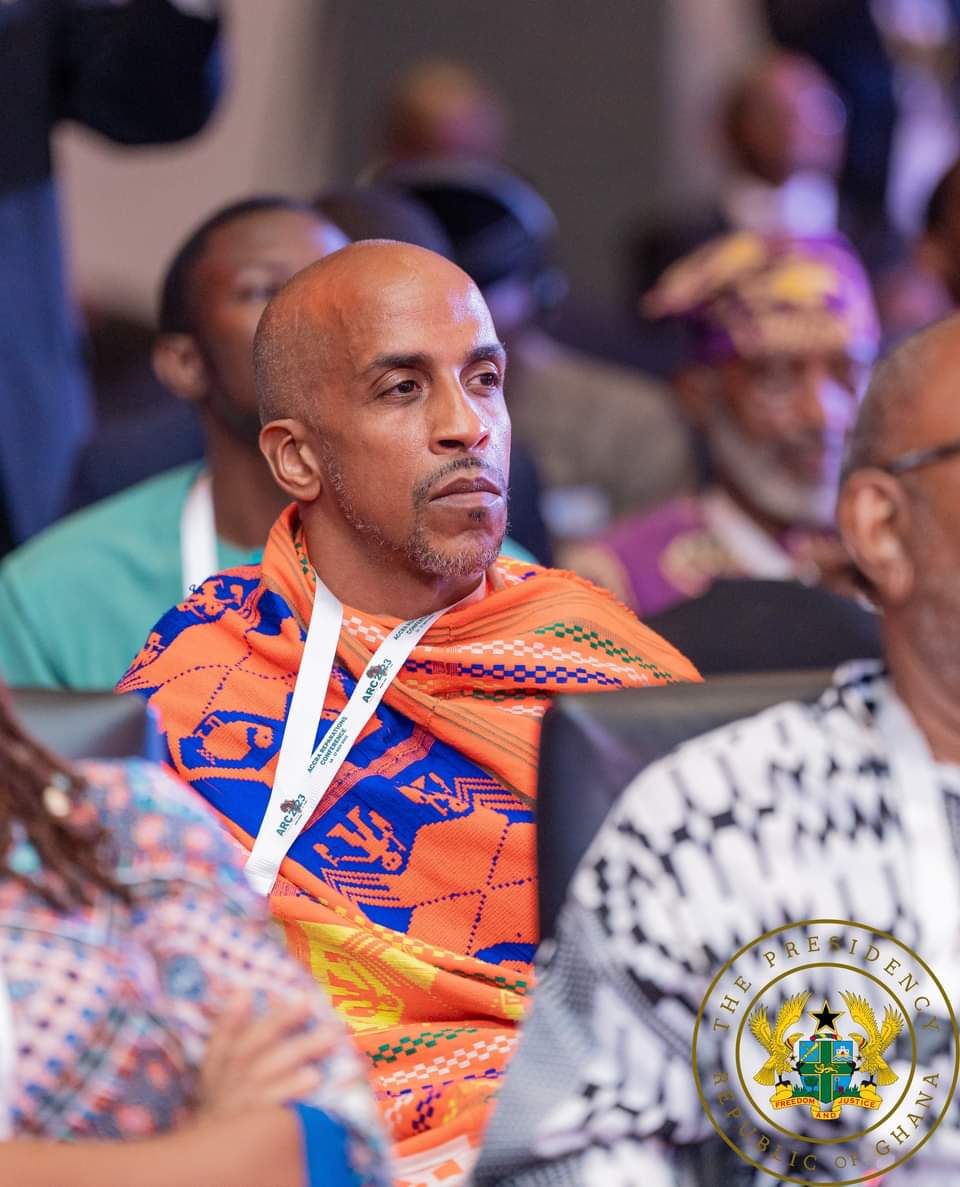
High profile dignitaries
Among the high profile dignitaries who attended the conference were his excellency (H.E.), Azali Assoumani, President, the Union of the Comoros, and AU Chairperson, H.E. Victoire Tomegah Dogbé, Prime Minister of the Republic of Togo, H.E. Gervais Ndirakobuca, Prime Minister, Republic of
Burundi, Dr Musalia Mudavadi, Prime Cabinet Secretary and
Cabinet Secretary for Foreign and Diaspora Affairs, Republic of Kenya and H.E. Adão Francisco Correia De Almeida, Senior Minister & Chief of Staff, Republic of Angola.
The others were H.E. Ronald Lamola, Minister of Justice, Republic of South Africa, H.E. Eldevina Materula, Minister of Culture and Tourism of the Republic of Mozambique, H.E. Mr Laid Rebiga, Minister for War Veterans and Rights Holders, Peoples’ Democratic Republic of Algeria,Bell Ribeiro-Addy MP – Chair, All Party Parliamentary Group for Afrikan Reparations and H.E. Dr. Monique Nsanzanaganwa Deputy Chairperson, African Union Commission.
From Wilberforce Asare






